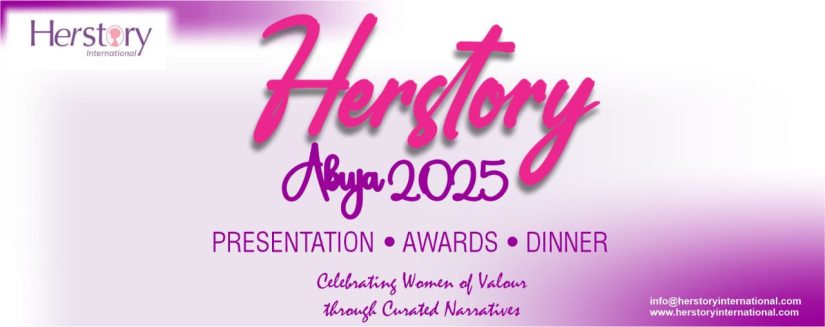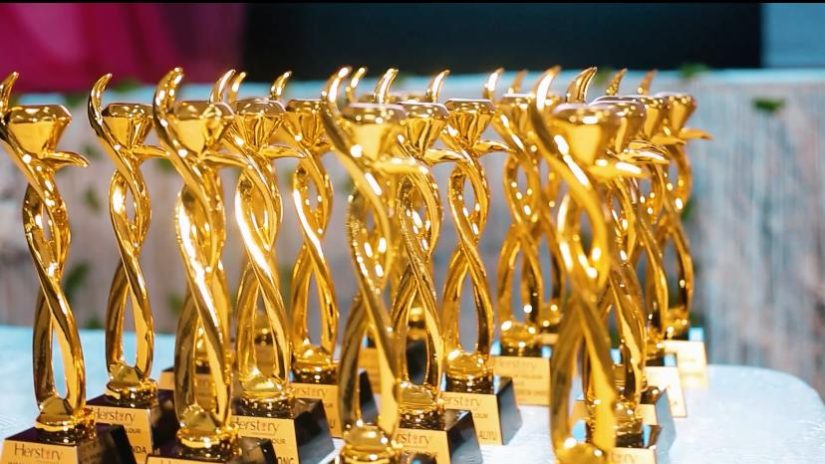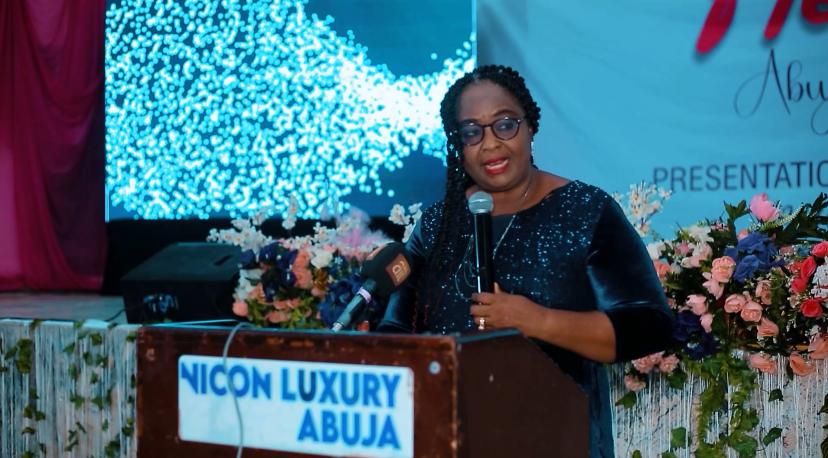HerStory Abuja 2025: How Women’s Stories Are Shaping Social Change
Daniel Otera
Although Nigerian women make up nearly half of the country’s population, their voices remain underrepresented in policymaking, media, and national conversations. But one powerful evening in Abuja offered a compelling counter-narrative.
At the HerStory 2025 International Awards Presentation and Dinner, stories once buried under silence rose to the surface reshaping what leadership, recognition, and transformation can look like when women speak.
Organised by May Publishing, HerStory International 2025 celebrated women not only for their achievements but for their often-unheard experiences that continue to shape communities across Nigeria.
The event was chaired by Mrs. Beatrice Eyong, the UN Women Country Representative, who was represented by Mrs Patience Ekeoba, Deputy Country Representative of UN Women Nigeria.
“Recognising and celebrating women’s contributions is one of the most powerful ways to inspire change and encourage others to follow suit,” Mrs. Eyong said in her keynote address. “At UN Women, we believe that gender equality is not a favour, it is a fundamental human right.”
The facts support her position. Despite Nigeria’s population being over 200 million with women accounting for an estimated 100 million, representation in politics and economic access remains starkly unequal.
As of 2023, just 4.2% of the National Assembly’s seats are held by women: only 4 out of 109 Senators, and 17 out of 360 House members. This places Nigeria among the countries with the lowest rates of female political participation globally.
Beyond politics, structural economic barriers persist. According to national data, only 14% of agricultural land in Nigeria is owned by women, even though women constitute a significant share of the sector’s workforce.
Access to credit, formal markets, and productive resources remains limited, especially for rural women in Northern Nigeria. Financial inclusion data remains fragmented, but existing studies confirm that rural women are disproportionately excluded from Nigeria’s formal banking system.

These sobering realities formed the backdrop for the HerStory platform, an initiative Mrs Eyong described as “a powerful act of disruption.”
“Telling the stories of women is not just about documentation. It is a powerful act of disrupting silence, invisibility and exclusion. When we centre women’s experiences, we give voice to those who have long been unheard.”
UN Women Nigeria is actively reshaping this landscape through programmes in five core areas:
1.” Gender-responsive governance and leadership, promoting women’s political participation; Ending violence against women and girls, through survivor-centred policies and support; Women’s economic empowerment, especially in male-dominated sectors; Peace, security, and humanitarian engagement, partnering with traditional rulers and institutions; Institutional reform and gender norm promotion, via policy advocacy and coordination” she said.
Recent efforts in Borno and Yobe States demonstrate how storytelling and economic empowerment intersect. Under its 2023 North-East Programme, UN Women helped form 86 women-led farming cooperatives, established three rice mills, and trained over 1,000 women in value-added rice processing.
This has not only improved household incomes but fostered greater economic resilience in post-conflict communities.
Additionally, a Network of Women Mediators and Male Gender Champions was launched, facilitating women’s leadership in conflict resolution and community safety. In 12 communities, over 600 women have gained influence through women-only storytelling spaces, safe platforms for mediating disputes and reshaping local governance narratives.
Globally, UN Women reports that women are 35% more likely than men to lead grassroots peacebuilding in conflict-affected regions.
“These efforts are not only admirable, they are transformational,” Mrs. Eyong stated.
She reflected on how storytelling preserves legacies, amplifies voices, and instigates social justice.
“Someone once said that the richest place on earth is the graveyard because it holds songs never sung, stories never told, and dreams never realised. Let us not allow women’s stories to die with them.”

From family caretakers to activists, the awards paid tribute to women whose work is often unseen but deeply impactful.
“Women are silenced, overlooked, and held back. But tonight, we’ve seen what happens when those stories are finally brought to light.”
In a moving close to her speech, Mrs Ekeoba who represented Mrs. Eyong, pledged to publish her late mother’s life story as part of Her Story 2025.
“My mother’s story will be told. She’s a woman with a powerful voice, and I believe there are many more like her whose stories deserve to be heard.”
Platforms like HerStory are creating room not just for recognition, but for a deeper national reckoning on whose stories shape Nigeria’s future.
UNESCO has long advocated inclusive storytelling as a tool for civic engagement and democratic resilience. Its global frameworks identify marginalized voices, especially women’s, as critical to sustaining social cohesion in diverse societies.
“Let us all commit to telling and retelling the stories of women in our communities,” She urged. “Let us recognize the change makers all around us, those who often go unseen but whose impact is undeniable.
With support from donors, media partners, and civil society, HerStory is positioning itself to scale across Nigeria documenting voices too long excluded and helping to forge a more inclusive national narrative.
The chairperson ended the evening with a pledge: “This platform is too powerful not to be promoted. In the next edition, I’m sure there won’t be a single seat left vacant.”
The night concluded, but its message endured: that real change in Nigeria might begin not with declarations from power, but with the simple act of listening to stories once unheard, now finally told.

